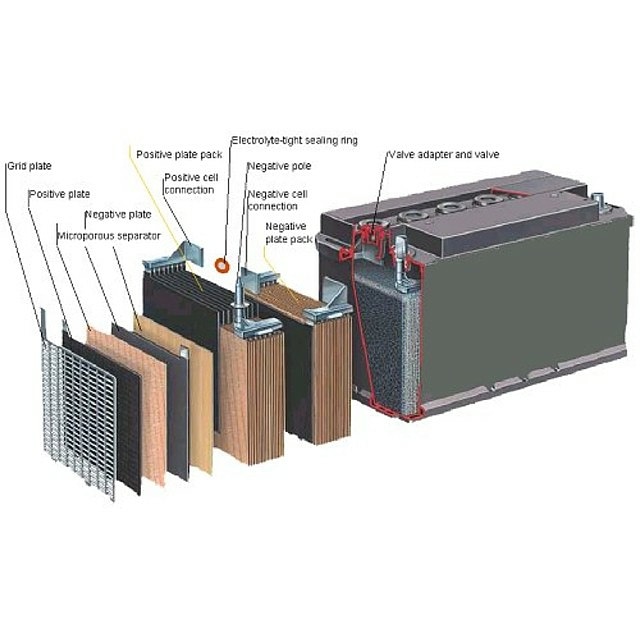
04 Mar Lead Battery Scrap
Lead-acid batteries are made up of plates, Lead, and Lead oxide with a 35% sulfuric acid and 65% water electrolyte solution. Lead-acid batteries represent almost 60% of all batteries sold worldwide.
Classification:
Generally, there are two types of Lead-acid storage batteries, based on their method of construction Flooded or Sealed. Flooded (or wet) Lead-acid batteries are those where the electrodes/plates are immersed in electrolytes. Sealed Lead-acid or valve-regulated Lead-acid (VRLA) battery where the electrolyte is immobilized. All Lead-acid batteries produce hydrogen and oxygen gas (gassing) at the electrodes during charging through a process called electrolysis. These gases are allowed to escape a flooded cell, however, the sealed cell is constructed so that the gases are contained and recombined.
Lead Acid Battery waste Recycling
The grid structure in both batteries is made from a Lead alloy. A pure Lead grid structure is not strong enough & therefore other metals like antimony, calcium, tin, and selenium in small quantities are alloyed for added strength and improved electrical properties.
The electrolyte in a Lead-acid battery is a dilute solution of sulfuric acid (H2SO4). The negative electrode of a fully charged battery is composed of sponge lead (Pb) and the positive electrode is composed of Lead dioxide (PbO). The separator is used to electrically isolate the positive and negative electrodes.
Waste Batteries
The typical Lead-acid battery comprises of: metal grids, electrode paste, Sulphuric acid, connectors and poles of Lead alloy, and grid separators made up of PVC. The battery components are contained in corrosion and heat-resistant housing usually composed of plastic (polycarbonate, polypropylene, or polystyrene).
| Component | [wt.-%] |
| Lead (alloy) components (grid, poles, …) | 25 – 30 |
| Electrode paste (fine particles of Lead oxide and Lead sulphate) | 35 – 45 |
| Sulphuric acid (10 – 20 % H2SO4) | 10 – 15 |
| Polypropylene | 5 – 8 |
| Other plastics (PVC, PE, etc.) | 4 – 7 |
| Ebonite | 1 – 3 |
| Other materials (glass, …) | < 0.5 |
| Table: Composition of Typical Lead-Acid Battery Scrap | |
In the past, grids were mainly made from antimony-Lead alloys, but new trends show an increase in the usage of calcium-Lead alloys. The electrode paste of used batteries is a mixture of Lead sulfate and Lead oxide. The composition of typical battery scrap material is given in Table.
Drained Lead Acid Battery Scrap
Drained Lead Acid Battery Scrap shall consist of whole drained lead/acid batteries. May contain plastic or rubber cases but may not contain wooden, metal, or glass cases. Similar to ISRI code RAINS.
This is the most preferred type of raw material for Lead recyclers/smelters or recycling/smelting Industries. We provide Rotary-based Smelting plants for processing such raw material with equipment & machines for handling & separation of Lead.



